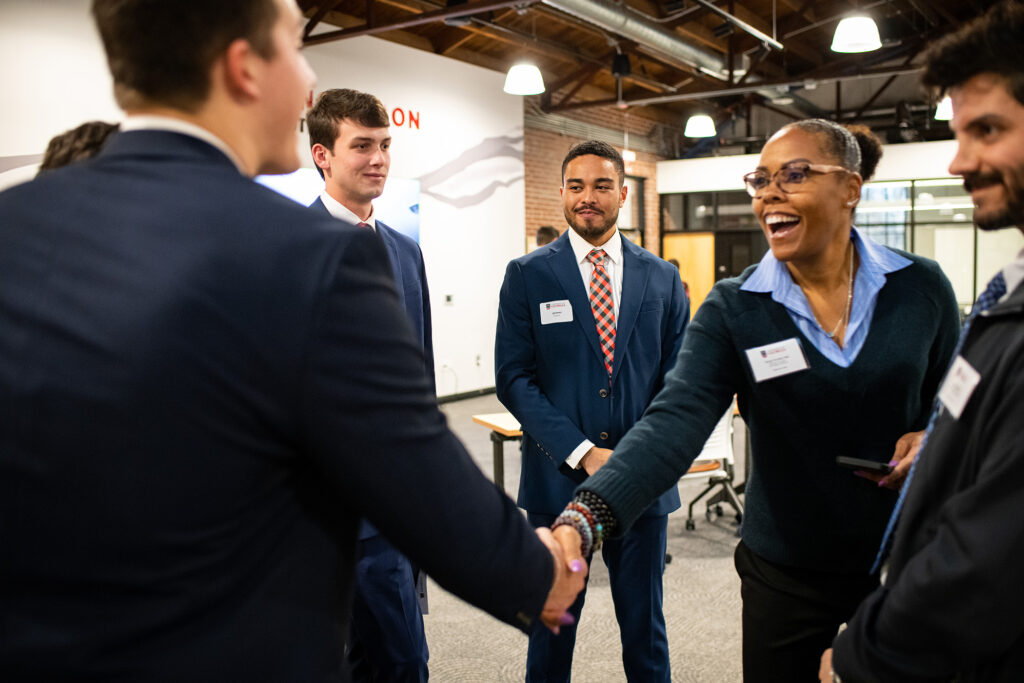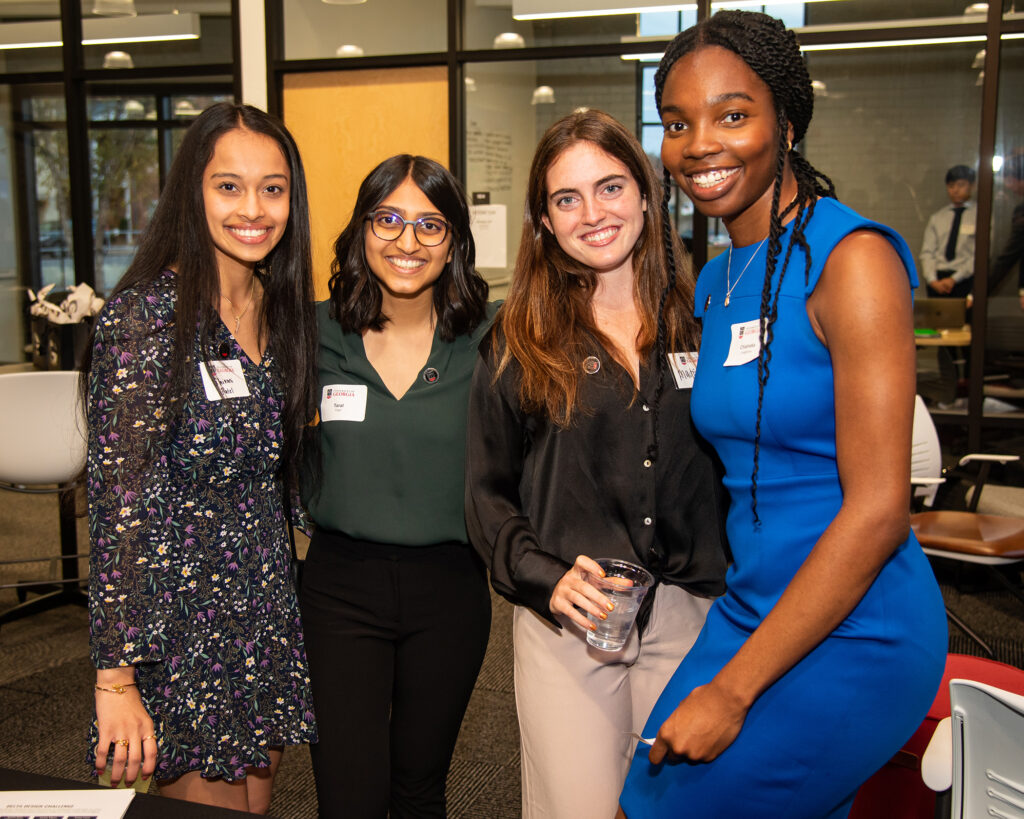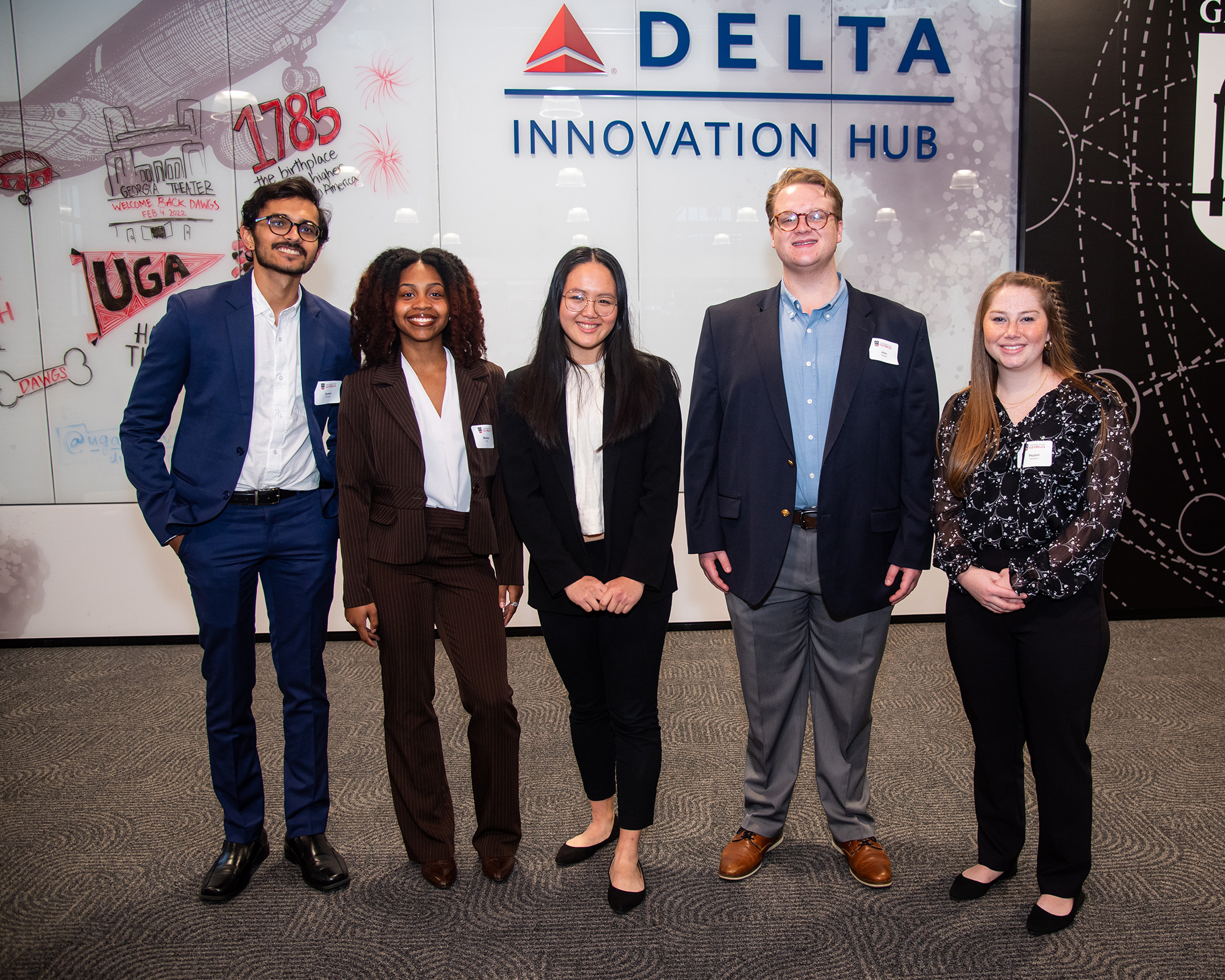Delta Air Lines has a strong commitment to sustainability and often partners with higher education institutions and other organizations to advance its goals. Through the Delta Design Challenge and efforts led by Delta’s innovation and sustainability teams, University of Georgia students were given the opportunity to answer the call to help create a more sustainable world.
Over the past several weeks, eight teams of five UGA students have been competing in the Delta Design Challenge. The challenge focused on helping the company to eliminate single-use plastic bottles on its flights. On Dec. 1, the teams, formed through UGA’s Student Industry Fellows Program (SIFP), pitched their solutions to a panel of Delta executives.

“We are really energized by the ideas UGA students presented to reduce single-use plastics on flights,” said Pamela Fletcher, Delta’s chief sustainability officer. “No company or industry can reach waste reduction and net zero goals alone. This partnership is a great example of how working with the next generation of innovators can accelerate our progress.”
The SIFP is a signature program within UGA’s Innovation District and is sponsored by The Delta Air Lines Foundation. Under the Office of Experiential Learning, SIFP cultivates the industry leaders of tomorrow by establishing meaningful industry partnerships and inspiring innovation among all majors. Students within this program work throughout the semester to solve modern industry problems. The Delta Design Challenge is one of many active learning challenges that enables students to apply the skills they learn in the classroom to real-world scenarios.

“The Industry Fellows Program recruits top talent at UGA among all courses of study,” said Andrew Potter, who leads SIFP. “This program is all about preparing students to make an impact by teaching human-centered design and empathetic leadership.”
At the core of this program is human-centered design, a design system that is grounded in empathy and intentional solutions. Developed out of the Stanford Design School, human-centered design puts real people at the center of the design process. Students are taught to understand all facets of an industry problem first and design the solution at the very last step. Representing nine schools and colleges across campus, the SIFP relies on interdisciplinary talent to establish thorough solutions and well-rounded teams, like those who competed in the Delta Design Challenge.
“We are not just looking for one type of student,” said Potter. “It takes all expertise to solve the issues. Regardless of what students choose as their major, we know they will have valuable insight to offer businesses like Delta. We encourage all students to participate in Innovation District programs if they have a passion for problem-solving and teamwork.”

The Delta Design Challenge illustrated the expertise of Industry Fellows Students across campus. Creating a touchpoint between UGA and various industries, the SIFP is one way the university aims to prepare students to make an impact as alumni.
“It’s great to see companies like Delta taking steps to improve the issue of single-use plastic on flights,” said Amol Gupta, a participating fourth-year UGA student who will join the Industry Fellows program this spring. “After brainstorming on the problem, we were able to find a solution that would best fit the needs of the company as well as the passengers. Getting to work on solutions for companies like Delta has made the work we do in the classroom much more tangible.


